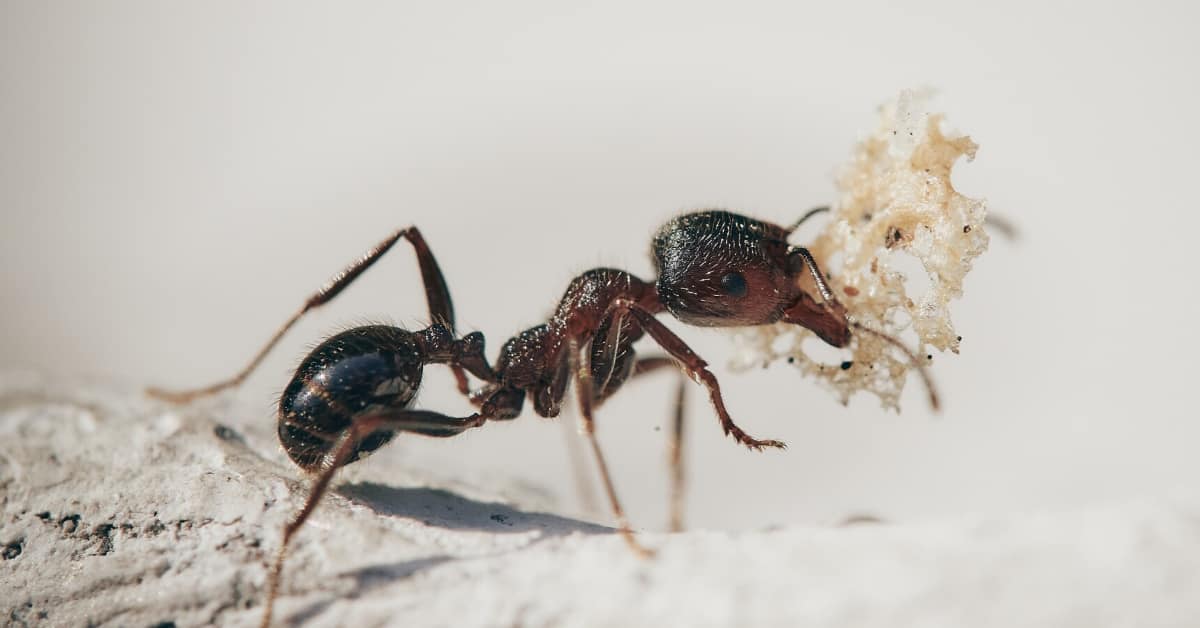Did you know that warmer winters can change the behaviors of pests?
Insects and pests are cold-blooded, meaning they can’t produce their body heat. This is why they do their best to seek warmer shelter. In most cases, winter is a period of hibernation for many. However, this is not the case for all, as there are still pests active during winter.
Here we discuss how winter weather will affect spring pests!
Spring Pests Migrate Early for Winter Weather
Yes, migration is the answer to how winter weather will affect spring pests. By fall, pests start getting ready for the long winter haul.
Common types of pests, such as bees, wasps, and other stinging insects, will often seek refuge in logs. However, some will choose to nestle in the eaves of residential properties.
The haven for spiders and rodents is often indoors. At the same time, ants will return to their nesting sites, often underground. When the ground temperature drops further, ants infiltrate homes for more favorable temperatures.
Meanwhile, most species of cockroaches will die when the weather starts falling. Yet, Oriental and German roaches will survive.
They’ll infest dark and damp areas, which are abundant during winter. This habit of preparing for the winter weather makes some spring pests an active problem from fall to winter.
Cold Winter Weather and Pest Population
Exactly how weather affects pest populations and their behavior depends on several factors. Aside from temperature, snow is a significant contributor.
When there’s not much snow, but the temperature is below zero for an extended period, it might decrease the population of pests. Specifically, the cold can kill off some eggs waiting to hatch in spring. Hibernating adult ticks, mosquitos, and ants will also die from the exposure.
Meanwhile, the pest will thrive when winter weather isn’t too cold, but there’s much snow. Surprised? Contrary to popular belief, snow won’t kill pests. Instead, they become a protective cover for pests against low temperatures.
The snow will insulate pests and their overwintering sites. This allows more pests and their offspring to survive through the winter.
Cold and Snowy Winter: How Winter Weather Will Affect Spring Pests
How do low temperatures in homes and heavy snow affect pests? Much like the situation previously discussed, a cold and snowy winter is beneficial.
Rodents such as mice, for instance, tunnel and roam under the snowpack. The snow not only insulates them from the cold but also acts as a blanket against falling snow.
However, note that the benefits will only apply when the temperature doesn’t stay below zero for a long period. Otherwise, extended below zero temperature will result in their death.
In addition, a heavy snow cover is also a big bumper crop for pests like ants. When these massive snow mounds melt in spring, they provide moisture and hence, large crops of grasses and seeds for pests to thrive. This will further result in increased pest activity the following season.
NJ Pest Control: Professional Pest Control Services
Knowledge is power, indeed! By learning how winter weather will affect spring pests, you get an overview of the changes in their behavior. This will help you strategize how to better protect your property against them.
Fortunately, you don’t have to take the heavy task of pest control alone. Armed with deep knowledge, hands-on experience, and up-to-date technology, you can trust NJ Pest Control for your pest issues.
Contact us today and talk to our team about our environmentally-conscious and cost-effective solution!

